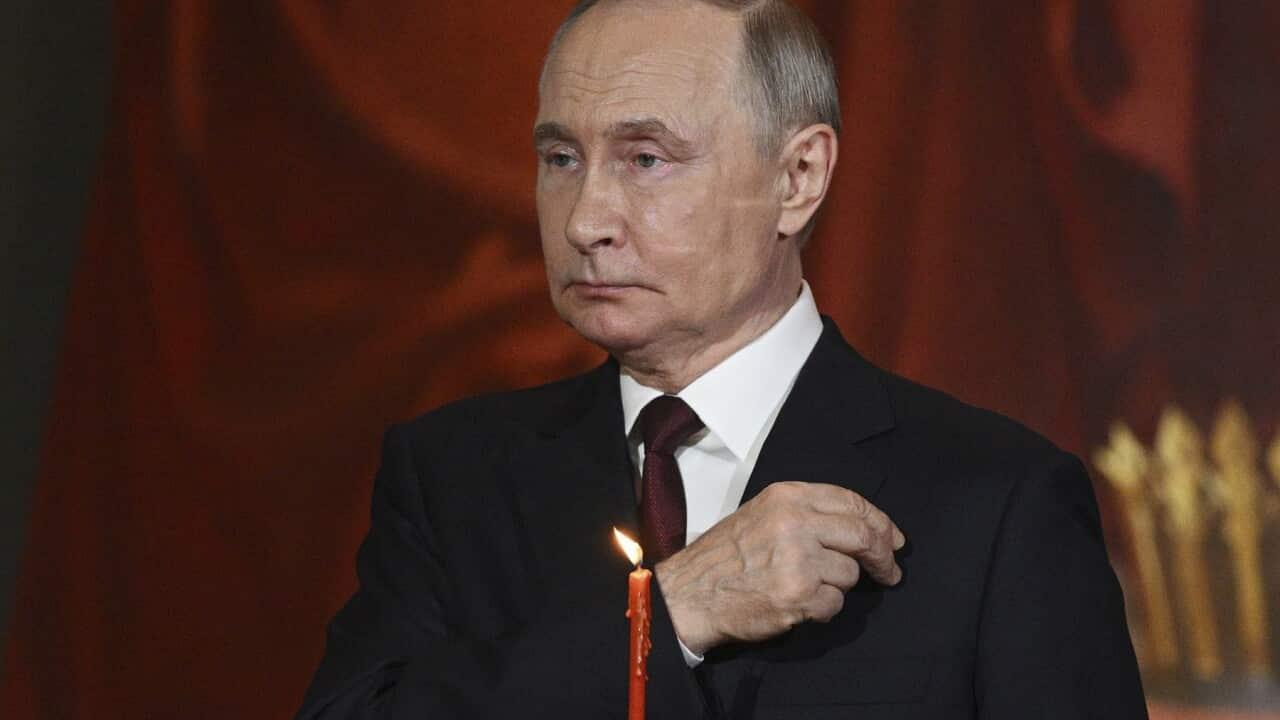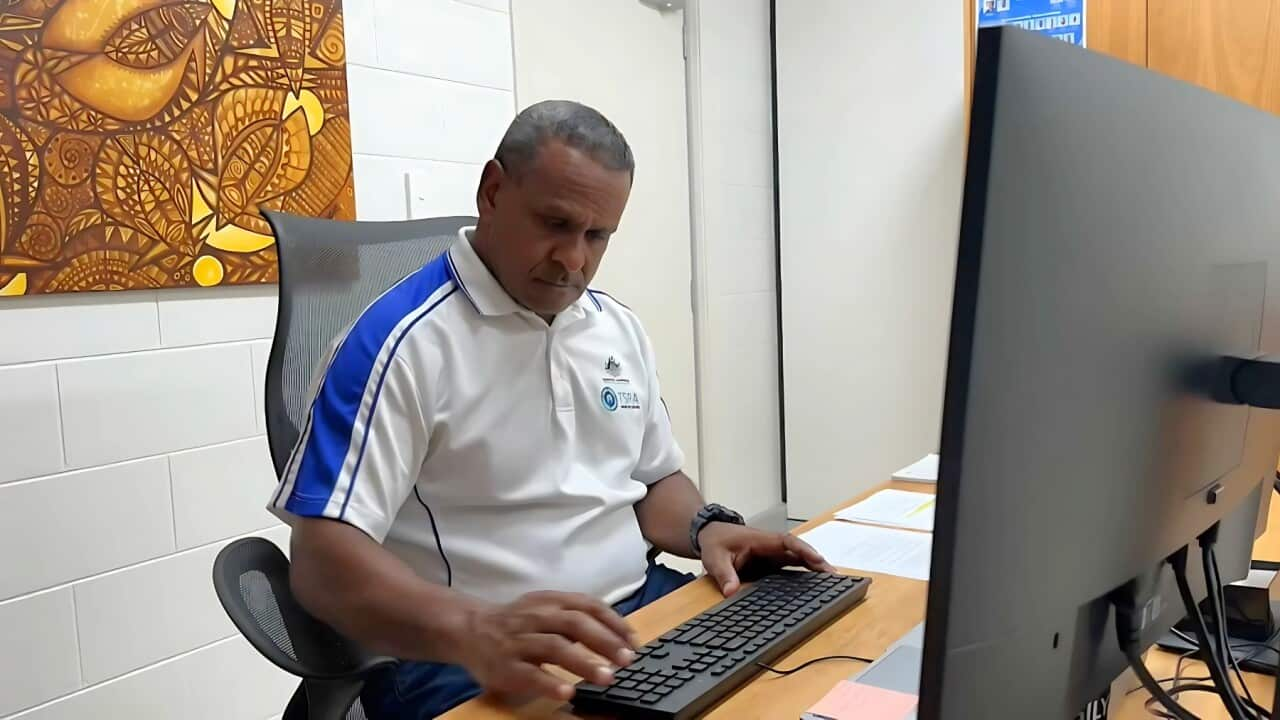TRANSCRIPT
100 days of war in the Gaza Strip has flattened the area which is less than half the size of Canberra at 360 square kilometres, to rubble.
On October 7, Hamas fighters attacked southern Israel, taking 240 hostages and killing 1,200 people.
Since then, Israel has conducted an unrelenting bombing campaign, followed with a ground offensive.
That has resulted in the death of nearly 24,000 Palestinians, according to the health ministry in Gaza and the UN.
Nearly 2 million civilians have been displaced - 85 per cent of the population.
The United Nations says it's the largest displacement of the Palestinian people since 1948.
More than 1.3 million displaced Gazans now live in a tent city in Rafah, near Gaza's southern border with Egypt.
32-year-old Heba Bakr says the last three months have been a nightmare.
Arabic then translated into English: "The 100 days that passed felt as long as a whole life, they were the worst days we ever lived. We feel that we are in a nightmare, that we can't leave. We don't know what will happen next. Is there something worse than this? I swear to God, we are really tired."
Her mother, Shahinaz Bakr, says the future looks bleak.
Arabic then translated into English: "The houses are destroyed, almost 70 percent of houses in Gaza Strip were destroyed. Where will we go when we return to Gaza City? Where are we going to stay? All our homes are destroyed. We lost our homes, markets, universities, organisations, everything we have is in Gaza. Without Gaza, we don't have lives. If we go back to Gaza City, we will put up a tent. Is it our destiny to be displaced? Displaced in 1948 and now again in 2024?"
Also marking 100 days is Maya Regev, the 21-year-old and her brother Itay were among more than 240 Israeli hostages taken by Hamas in the October 7 attack.
She and her brother were held captive for more than 50 days in Gaza before their release in November.
She says prayers are what got her through - and she is now praying for the release of the 132 hostages held by Hamas.
Hebrew then translated into English: "When I was there, I sat there alone and prayed every day to God to get me out of this hell. Today, I sit here, in my country and pray for all those who are still there (in Gaza), praying that they are strong enough to hold on a little longer."
Echoing that message is Idit Ohel, the mother of 22-year-old pianist, Alon Ohel, who is among those still held captive by Hamas.
She has started the Yellow Piano Initiative to keep the focus on the hostages and the need for their release.
She says time is of the essence when it comes to the release of the hostages.
"I want to say that it has been 100 days today. And time, we don't have a lot of time at all. Time is running out and I feel that we need to do something now."
Thousands also attended a 24-hour rally in Tel Aviv to demand the return of the remaining hostages.
The Israeli military says it has now scaled back operations in the hard-hit north.
But in the south, where it says Hamas' leaders are hiding, it presses forward at full strength.
Israeli Prime Minister Benjamin Netanyahu says the war against Hamas would continue "until the end, until total victory".
Hebrew then translated into English: "We today mark 100 days of war, 100 days since the terrible days on which our citizens were slaughters and kidnapped. We are continuing to the war to its conclusion - to total victory, until we have achieved all of our objectives: the elimination of Hamas, the return of all our hostages and the guarantee that Gaza will never again pose a threat to Israel. We will restore security, both in the south and in the north. No one will stop us - not The Hague, not the Axis of Evil, nor anyone else."
Andrea De Domenico from the United Nations Office for the Coordination of Humanitarian Affairs says the conditions in Gaza are unbearable - and a humanitarian ceasefire is overdue.
"There is a lack of shelter, lack of water, lack of food, lack of health. They are trying to organise themselves. There so many little shops done literally with a piece of wood and three items on top of it. And people are selling it because they need something else that they can have through the assistance they receive. It is a situation of desperation that you can really feel it. You can touch with your hands."
Meanwhile, diplomatic efforts continue to avert a region-wide war.
Foreign Minister Penny Wong has embarked on a week-long trip to Middle East to include Jordan, Israel, the West Bank, and the United Arab Emirates.
It is the first time a senior Albanese government minister has visited Israel since the October 7 Hamas attack.
She ways her focus is on a pathway out of the conflict.
"Australia is not a central player in the Middle East, but we are a respected voice. And I will be using our voice to advocate for a pathway out of this conflict. We all know that pathway can only be found by the parties in conflict. I will be focusing on advocating Australia's position, our priority on international humanitarian assistance, our priority on international humanitarian law."
International law is being used by South Africa to bring a landmark case against Israel at the International Court of Justice on allegations of genocide against the Palestinian people.
The UN's top court will take the next few weeks to consider the opening arguments presented by both parties [[11-12 Jan]] on whether there has been a breach of the Genocide Convention.
South Africa alleges Israel’s indiscriminate retaliatory bombing and siege of Gaza constitute a breach, while Israel has told the court its actions in Gaza are self-defence and not aimed at Palestinian residents.
South Africa is seeking the court to approve provisional measures requiring Israel to end its military operations in Gaza while the case is heard.
UK barrister specialising in international law, Toby Cadman told SBS he thinks South Africa has established a strong argument for the provisional measures, but proving the genocide charge in full will be more involved.
"I felt that the team (for South Africa) presented an overwhelming request to the court that I think the court will consider very seriously. Obviously, it (South Africa) went into some detail on the evidence it is relying on. Statements by government officials. Establishing genocide, he specific intent for genocide, is a very high threshold. But certainly, I think for what's required to be proven for provisional measures - the case was very well put."
The threat of a broader regional conflict has world leaders concerned.
Israel is trading fire almost daily with Hezbollah and Iranian-backed militias attacking US targets in Syria and Iraq.
And Yemen’s Houthi rebels have been targeting international shipping, drawing a wave of US airstrikes last week.
Egyptian Foreign Minister Sameh Shoukry says he wants "an international summit for peace" to find a "lasting solution to the Palestinian cause".
Arabic then translated into English: "The escalation over the Lebanese borders including the targeting of certain areas as well as the tension in the Red Sea and disrupting the freedom of navigation are all issues that show, whether deliberately or by mistake, the widening of the scope of the conflict. It is getting the region into an empty cycle of escalation that have extremely dangerous consequences for the safety and stability of the economy - and on the lives of citizens."













